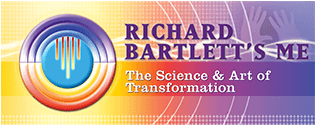
“It’s ok to have butterflies in your stomach, just let them fly in formation”.
Helen Keller
Positive Ways of Coping with the Effects of Stress
Stress is something we all encounter.
Life changes such as moving home, getting married or coping with a bereavement can all cause stress, Covid19 has created great stress for many people.
See Covid19 page.
While negative social conditions such as unemployment, poor housing, noisy or difficult neighbours, relationship problems and difficulties at work can also make a contribution towards stress levels within us, stress can affect anyone at any time.
Stress means different things to different people. A situation which is tolerable to one person may be stimulating to another. What you feel, is determined not just by events and changes in the outside world but how you perceive and respond to them.
The important point is that you can learn to recognise your own responses to stress and if necessary, develop skills to deal with it.
For example, a simple way to bring positive change into your life is to create a goal, something to achieve in your life to reduce the stress and bring in a positive alternative to the current situation. Even completing one bite size chunk out of 100 is progress. Treat it like building a dam, one twig at a time.
State your intent for change, tell a friend about your plan or post it on line if its not too personal. Be accountable, update your friend on how your doing. If you know you need to report your progress to someone you are more likely to do it.
Be flexible, its ok to change your goal if you feel the need but never let it be because you have given in to negativity. Finally, enjoy the journey, do not pin all your happiness on reaching the end point. You need to enjoy what you are doing while your getting there.
When and Why Is Stress Harmful?
In the animal world, the response to danger is to run away or to turn and fight. People respond to emotional stress as if it were a physical threat.
Rapid changes in the muscles and organs of the body are involved. Your muscles tense, ready for action and your heart beats faster to carry blood to where its most needed, the muscles and the brain.
You breath faster, sweat more and your mouth becomes dry. These physical reactions are caused by hormones which the body produces, including one called adrenaline.
This automatic reaction to a threatening situation is known as the fight or flight reaction. It equips us to fight or escape from an enemy. You may merely be having an argument with a colleague but your body may react as if you were gripped in a life or death struggle with a lion.
Unfortunately, many people turn to cigarettes, alcohol or drugs (tranquillisers etc) as a way of coping with stress. These may seem to help in the short term but in the longer term may further undermine well-being and will not contribute to developing a positive approach to stress.
You can’t change the past,
But you can ruin the present
By worrying over the future!
How Can I Tell if I’m Under Too Much Stress?
As stress begins to take its toll physically, emotionally and on your behaviour, a variety of symptoms can result.
- Look at the symptoms below and see how many of your bodies reactions you can recognise within yourself.
Breathlessness, chest pains, constant tiredness, constipation or diarrhoea, cramps or muscle spasms, craving for food, dislike or inability to have sex, dizziness, fainting spells, feeling sick, frequent crying, indigestion or heartburn, headaches, high blood pressure, lack of appetite, nail-biting, nervous twitches or muscle spasms, pins and needles, restlessness, sleeping problems, tendency to sweat. - Look at the feelings below and see how many effect you.
Aggressiveness, irritability, depression, dreading the future, fearing disease or illness, fearing failure, feeling bad or ugly, feeling neglected or lonely, having no one to confide in, taking no interest in others, loss of sense of humour. - Look at these behaviours, see if you recognise any in yourself.
Difficulty making decisions, inability to show true feelings, difficulty concentrating, avoiding difficult situations, denying there’s a problem.
In recognising your own reactions, you can get an idea of your characteristic responses to stress.
“Inch by inch, life’s a cinch. Yard by yard, life is hard.”
Author Unknown 12th October 2008
What’s the Best Way to Handle Pressure?
Remember that a little stress is good for the body and alerts the mind. Remember the methods of coping with stress described on this page should enable you to deal more effectively with it.
Manage Your Time.
Although we may often plan for months ahead, it’s also important to plan our days. Making time for leisure, exercise and holidays are just as essential as spending time on business and domestic worries.
Everybody has a time when they feel at their best. Identify your best time, you may be a morning person or a night owl, use your best time to carry out important tasks that need the most energy and concentration.
Make a list of things you have to do on any given day. These are your priorities, everything else can be left until later. Arrange these priorities in order of importance and stick to that order.
Try to take tasks one at a time until each is finished. If you try to do too many at once you’re more likely to end up muddled and to accomplish less.
Variety is a good idea. If you can, vary your tasks in a day, dull jobs with interesting tasks, tiring jobs with easier ones.
 Act positively.
Act positively.
Once you have finished a task, take a few moments to pause and relax. Remember to use your break wisely, do you really need that cigarette or cup of coffee? Why not eat an apple or try some deep breathing instead?
In the face of unrealistic demands and expectations coming from other people, be prepared to say no. Practise being straightforward and assertive in communicating with others.
At the end of each day sit back and reflect on what you have done and what you have achieved, rather than spending time worrying about what still needs to be done.
Try to make time to switch off from your tasks at home or at work. Use your free time to relax and unwind, a change of scene can help. Try to get away every so often, even if only for a couple of days.
Develop an absorbing hobby or interest, one that is far removed from everyday stresses and strains, you will be glad you did.
How Can I Overcome the Ill Effects of Stress?
Sleep Problems
Sleep problems like insomnia are a common sign of stress. A recent survey showed that one in five people have them.
Worries about personal problems, family or work may make it increasingly difficult to fall asleep and sleep may be disturbed by vivid, bad dreams.
There are several simple measures worth trying to establish a better sleeping pattern. Try some of the following ideas.
Pay attention to your surroundings, if you are troubled by noise, use earplugs, if light from the street disturbs you, use thick lined curtains or blinds.
It makes sense to wake up at the same time each morning and go to bed the same time each night. Usually, if people get up regularly at the same hour, they will tend to become sleepy by a certain hour in the evening.
There is much more information on help with sleeping problems on the “sleeping problems” page of this website.
The holistic approach to health care emphasises the need to look at the whole person and not just their problems and this can also be very helpful for stress-related symptoms.
Many Alternative and Complementary medicine practitioners take a Holistic approach. Healing, Meditation, Reflexology or massage, for example, can relieve stress disorders and promote relaxation.
Stop skipping breakfast!
Skipping meals can cause our blood sugar levels to drop, which not only triggers the stress response within our body but can result in irritability, anxiety, fatigue and even emotional outbursts.
The first meal of the day helps replenish our glucose stores after the overnight fast period. Research suggests those who miss their breakfast are more likely to feel depressed or anxious.
A study of 30,000 people found that those who skipped breakfast snacked on more sugar, fat and refined carbohydrates throughout the day and consumed fewer vitamins and minerals, this in turn negatively affected their mood.
Starting the day with a breakfast that provided a source of protein and fibre, will help your body stay nourished throughout the day. Foods such as porridge, natural yogurt with fresh fruit and seeds or wholegrain toast with poached eggs will provide the blood sugar stability we need.
How Can I Help Myself to Relax?
Relaxation is the natural answer to stress. Each and every one of us should make time in a day to relax, whether we feel under stress or not. The following techniques can help.
Deep Breathing
The way you breath can have a dramatic effect on your sense of well-being. Many people breath poorly, without even realising it. This is especially true of people under stress.
To improve your breathing, try this simple exercise for just five minutes a day. It can help relieve tension, anxiety, dizziness, pins and needles, cramps and chest pains.
- Sit down or lie down on your back. Make sure you are comfortable and loosen any tight clothing.
- Become aware of your breathing, its rhythm, depth or shallowness and its speed.
- Put one hand on your upper chest and one just below your ribs on your abdomen.
- Slowly let out your breath.
- Gently breath in so that you feel your abdomen rise slowly under your hand.
- Breath out again, feeling your abdomen fall and make sure you exhale a little longer than you inhaled.
- Pause for a few moments and then repeat the process again.
If you find that only the hand on your abdomen moves, then you are breathing correctly. The abdomen is moving as your diaphragm rises and falls rhythmically.
You should find little or no movement in your upper chest, your hand should stay still.
Simple Relaxation
Try this every now and then, especially when you feel under pressure. It should take you no more than five to ten minutes
- Have a stretch. Then let your shoulders and arms relax into a comfortable position. Shrugging, wriggling and shaking all help your muscles to stop tensing and to relax.
- Ease off the tension in your feet, ankles, calves, knees, thighs, chest, arms and neck.
- If you are sitting in a chair or lying on the floor, allow yourself to feel as if the chair or the floor is supporting your whole-body weight, feel yourself letting go.
- Try to be peaceful, loosen your jaw and face. A bland expression will help your face muscles to relax.
- Follow the breathing technique just described above.
- Close your eyes and imagine a peaceful scene, an exotic desert island, the shady depths of a forest or sunlight glistening on a lake.
- Choose your own special place, whatever seems most restful to you. Then for a few moments, imagine that you are really there.

Guided meditation CDs can help you to relax by having a scene such as this one, described to you.
With appropriate background sounds as well, you are also listening to a built-in relaxation technique.
This is helpful if your imagination is not very good or if you find it difficult to switch your mind off long enough to relax. You tend to concentrate on the voice of the narrator instead of the chatter of your own mind. With regular use, relaxation does become a lot easier.
“Guided meditation CDs can be supplied free of charge, when attending a Healing and Counselling session with me, to help you relax at home”
How Can Exercise Help?
Physical activity is an important means of reducing stress levels and preventing some of its damaging effects on the body.
Exercise uses up the adrenaline and other hormones which the body produces under stress and relaxes the muscles. It will help to strengthen the heart and improve blood circulation too.
Research suggests that physical activity can lead to a change in body chemistry which can affect the way people feel, as well as their physical condition. Exercise can also help to raise self-esteem and reduce anxiety and depression.
What Else Should I Be Doing?
Having fun.
Making time for regular leisure activities can help you release the tension that stress can cause and take your mind off the worries of the day.
Soak in a hot bath, read your favourite books, listen to music, have hobbies like gardening or taking photographs etc, the important point is to enjoy the activity as an end in itself, purely for the pleasure of the moment.
Healthy eating.
When things get too hectic or difficult and you feel under stress, it’s often easy to forget about what you eat.
What we eat and when we eat make a big difference. It’s important to make time for regular food or snacks and not miss out on meals, such as breakfast.
Try not to rush your food, take time to enjoy what you’re eating. Choose a good variety of foods, particularly those rich in starch (bread, potatoes, pasta and rice) and fibre (cereal, wholemeal bread, vegetables and fruit). Finally, cut down on fat, sugary foods and salt.
More dietary information can be found on the “you feel what you eat” page of this website.
It’s only the stories that you are telling yourself that keep you where you are and it’s only the stories that you have told yourself that have got you there in the first place.
The source of your happiness will be found in who you are not what you do. Your true being is nothing to do with what is happening outside of you, you can lose your job and still be ok.
Being stressed is not going to help you in any way; in fact, the worse things are on the outside the more you need to focus on the inside. Security, financial or otherwise comes not from containment but from creation, real security comes from your ability to create whatever you want or need whenever you want or need it.
Happy people are successful far more than successful people are happy. Whatever it is that you fear in the future you’re almost certainly making it up and then believing the story you’re telling yourself. The way to stop being scared is to stop telling yourself stories.
Author Unknown





